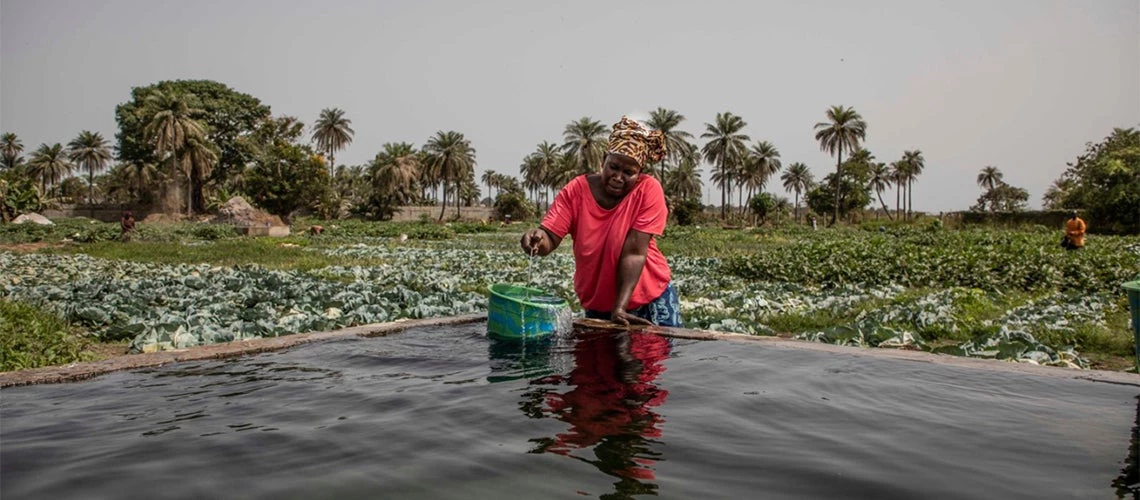 3 key fronts on which Africa must combat climate change
3 key fronts on which Africa must combat climate change
By Ousmane Diagana, World Bank Vice President for Western and Central Africa
Never before have African countries felt such a sense of urgency to act, adapt, and build resilience. Every year, people are experiencing more floods, soaring temperatures, coastal erosion, land degradation, and other climatic shocks. In Western and Central Africa, recent floods across the region have affected millions of people, claiming lives, and displacing tens of thousands from their homes and livelihoods. It is one thing to talk about climate change, but as the African proverb says, “seeing is different from being told”.
Yet, Africa emits less than 4% of the global greenhouse gas emissions and is also today the largest contributor to carbon absorption thanks to the Congo Basin, the lungs of Africa and the world. The climate crisis is undermining hard-won development gains and deepening cycles of poverty, fragility, and vulnerability across the continent. As we concluded the World Bank IMF annual meetings in Washington, it was clear from the discussions that climate change was front and center on the agenda of our Finance Ministers.
Recent Country Climate and Development Report (CCDR) for the G5 Sahel countries and forthcoming reports on Cameroon, Ghana and other countries from Africa show that climate change could induce GDP annual losses ranging between 2 and 12 % by 2050, driving millions more into poverty. In the Sahel, 13.5 million more people could fall into poverty by 2050 if no action is taken. The research also highlights that advancing reforms for rapid, resilient, and inclusive growth is both the best form of climate adaptation and the best strategy for meeting development goals.
So, what are the key priorities from Western and Central African countries, as the delegations get ready for the COP 27 in Sharm el-Sheikh?
Boosting climate smart agriculture to sustain food security
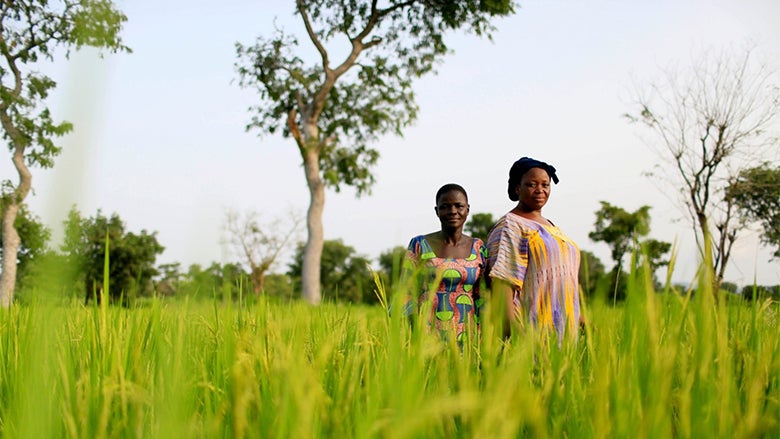
Since the last decade, countries have faced a worsening food security crisis, exacerbated by the recent dramatic rise in energy and fertilizer prices. In response, the World Bank is stepping up its financing with $17.7 billion across Sub-Saharan Africa - including $5.1 billion in new commitments - to encourage food production, enhance food systems resilience, facilitate trade, develop inclusive value chains, and support vulnerable households and producers. As part of this effort, the West Africa Food System Resilience Program will reach four million people and increase yield production through climate-smart agriculture.
With fertilizer prices in Sub-Saharan Africa multiplied by three since 2020, there is a growing risk of food production shortages and food price hikes. Failure to act rapidly could lead to increased food insecurity in the region with over 100 million Africans becoming extremely food insecure. Tackling the fertilizer crisis will require collaboration between governments and the fertilizer industry to develop a transparent and efficient fertilizer market in the region, better understand the soil needs, adopt sustainable agricultural practices for boosting productivity and increasing farmers’ income in a sustainable manner. Investments in climate smart agriculture are also reaping benefits for countries in the region, with greater food security preparedness, stronger value chains and integrated landscape management.
Countries can turn their natural capital into wealth
In Central Africa, the Congo Basin is home to 70 % of Africa's forests, which act as the world’s largest carbon sink. Its forests are estimated to contain between 25 to 30 billion tons of carbon. It is one of the most important hotspots on the planet for valuable biodiversity, which is rapidly depleting. It is also an important source of livelihood for the poor. The Congo Basin represents a first line of defense against climate change. However, with the support of the global community, the region will need to translate this asset into revenue streams locally, nationally, and globally.
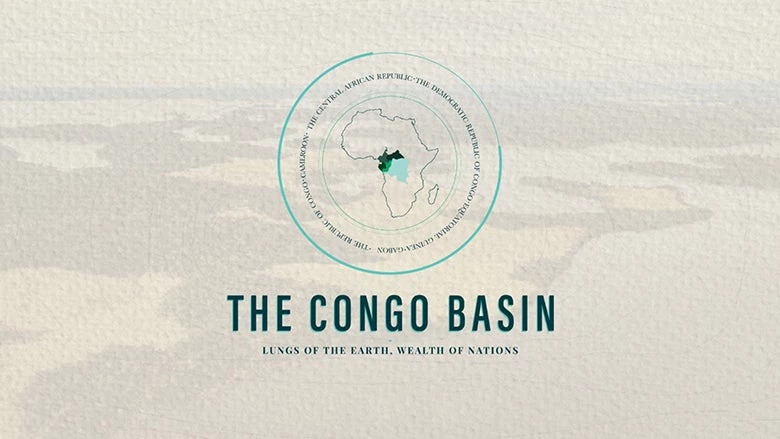
The Congo Basin: https://wbgvr.org/congobasin
Together with governments and partners such as the Central African Forest Initiative, Forest Carbon Partnership Facility, Forest Investment Program, Global Environment Facility, PROGREEN, and REDD+, the World Bank is committed to supporting forest-smart development in the Congo Basin, empowering local and indigenous communities, and promoting the transparent and effective use of natural resources.
Countries in the region, such as Gabon and the Republic of Congo, are proactively addressing land degradation. They experience firsthand the benefits of carbon sequestration for job creation and enhanced climate resilience. Ensuring African countries’ participation in carbon markets will be the next priority to leverage additional climate finance.
Focus on climate adaptation as the “new normal” of development
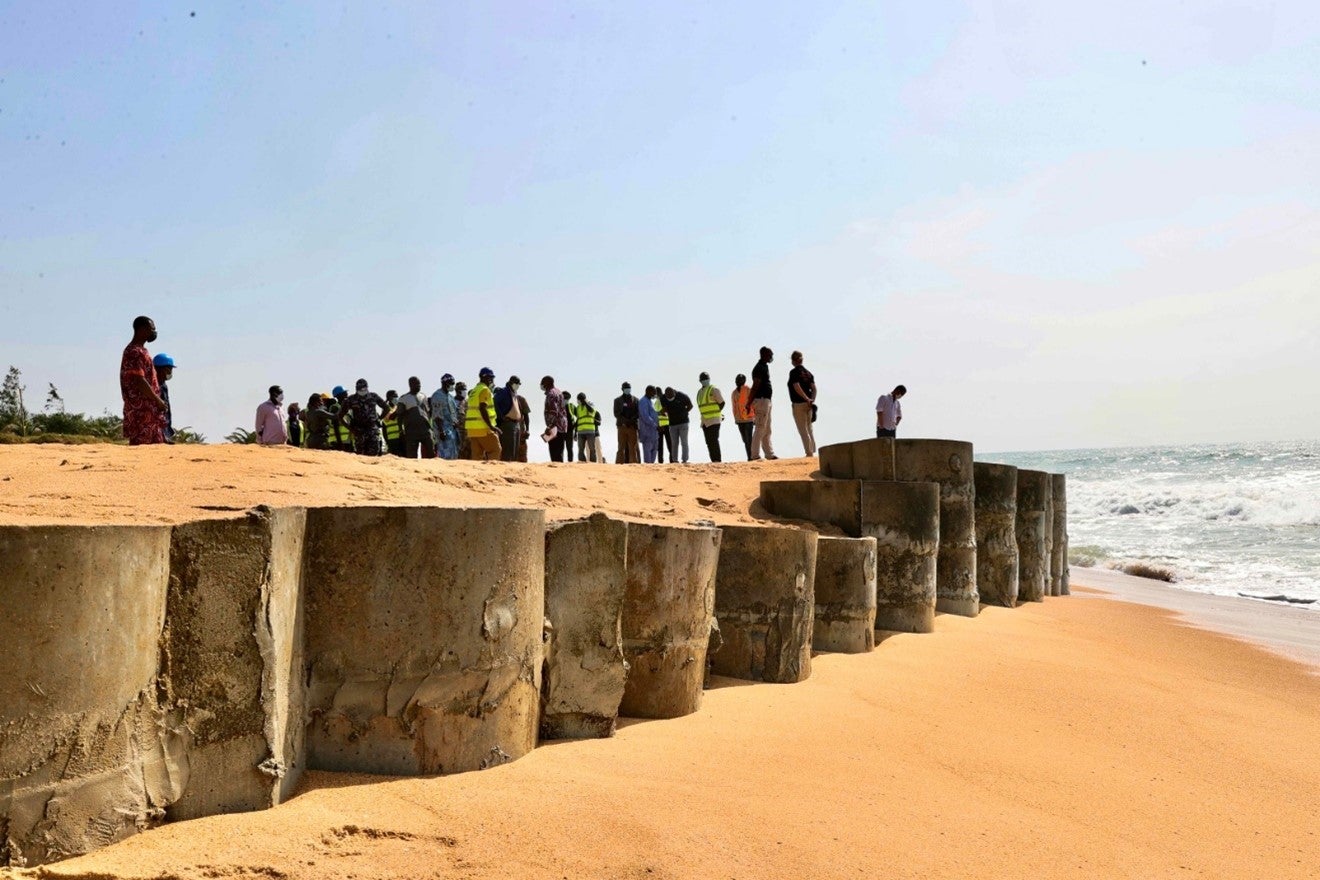
African countries need to invest in climate adaptation and shift to a low-carbon growth path to support sustainable development. As a leading partner and the largest financier, the World Bank is committed to supporting Africa ‘s low-carbon resilient transition. In Western and central Africa, we have mobilized $4.9 billion in climate financing across 92 projects from July 2021 to June 2022. The region has delivered a robust portfolio of green, resilient, and inclusive investments driving transformation and innovation. Strong climate action and increased climate financing are helping countries realize their full potential. As part of this effort, the World Bank is supporting transformational programs such as the African-led Great Green Wall that focuses on improving people’s livelihoods through landscape restoration, improved food systems, and access to climate-resilient infrastructure. In Cote d'Ivoire, the Agri-Food Sector Development project is supporting the development of inclusive, resilient and competitive agri-food value chains. These are just some examples of how we are scaling up our climate investments.
Recognizing that the cost of inaction is far greater than the cost of action is a major point. Financing adaptation strategies will be more cost-effective than financing crisis responses to more frequent and severe climate shocks. For all Africans living the reality of climate change, we need to reinforce our collective efforts and turn this crisis into an opportunity. We will ensure their voices will be heard in Sharm el-Sheik and beyond.
This blog was initially published on World Economic Forum.

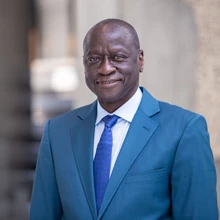
Join the Conversation